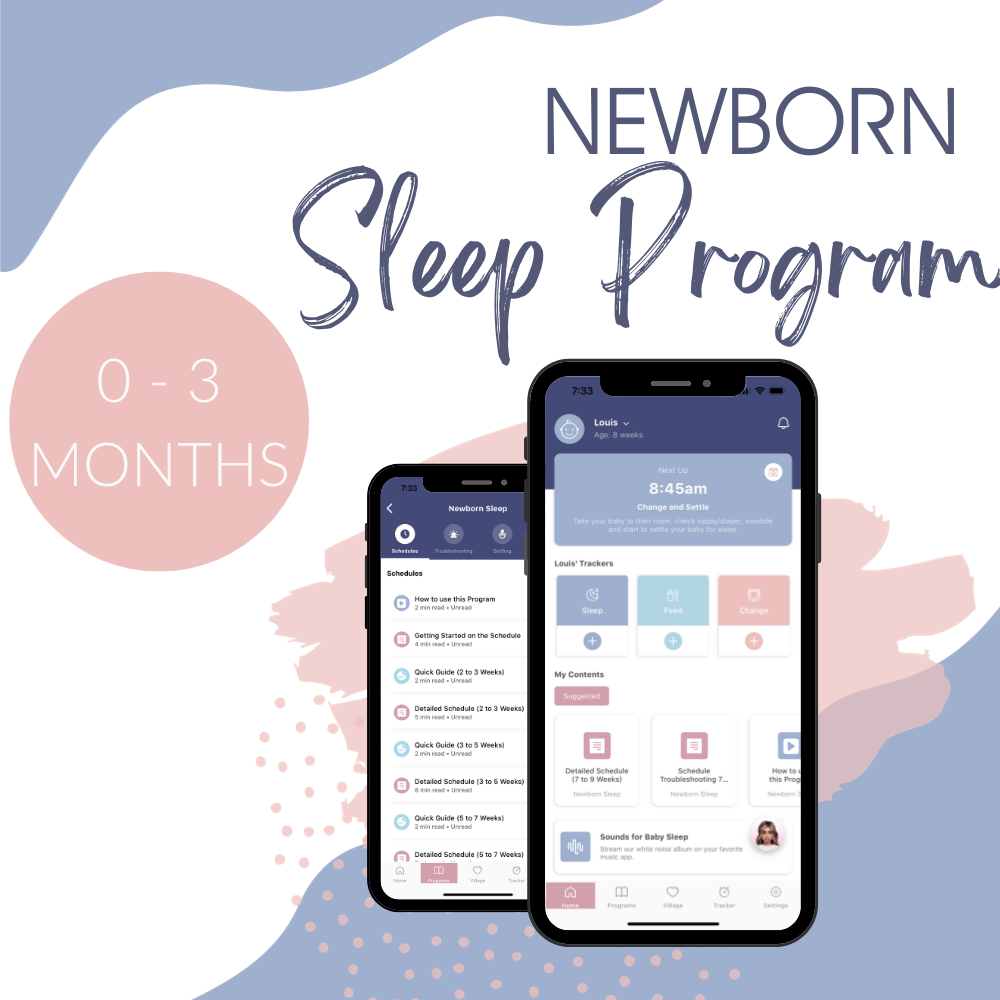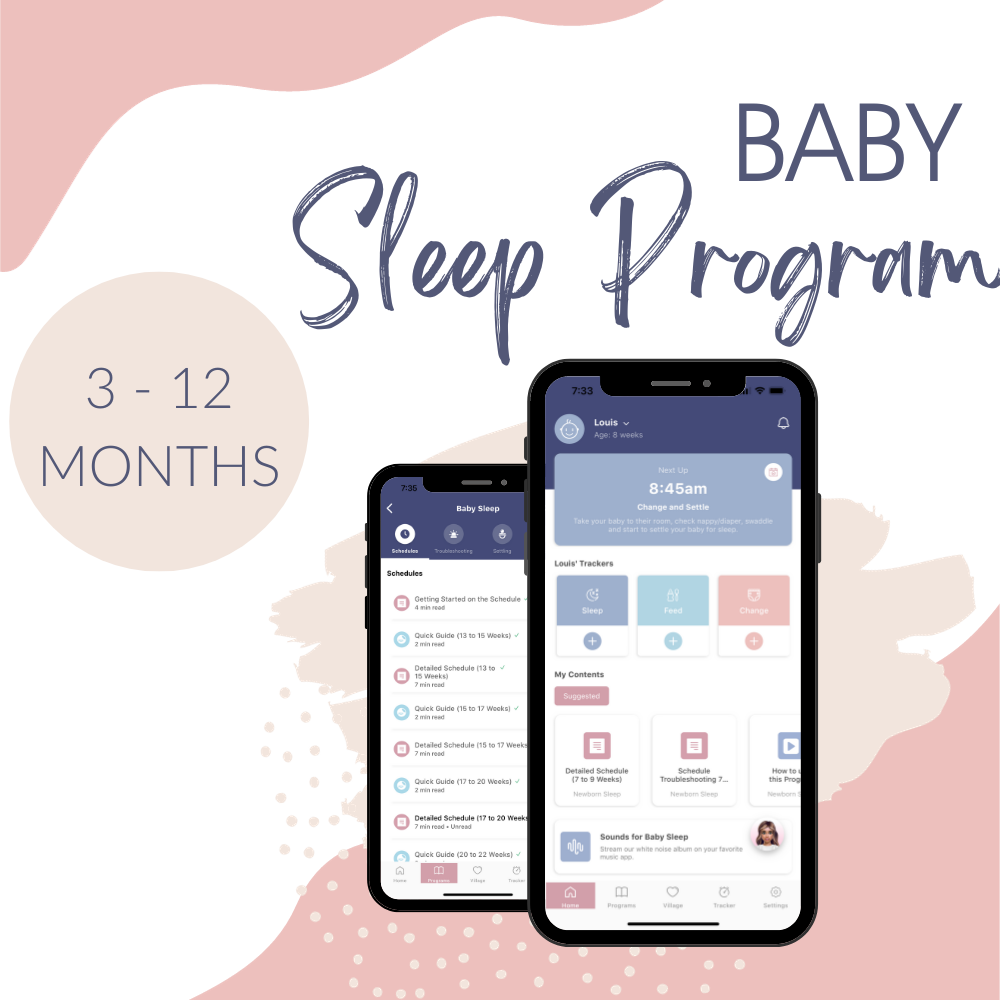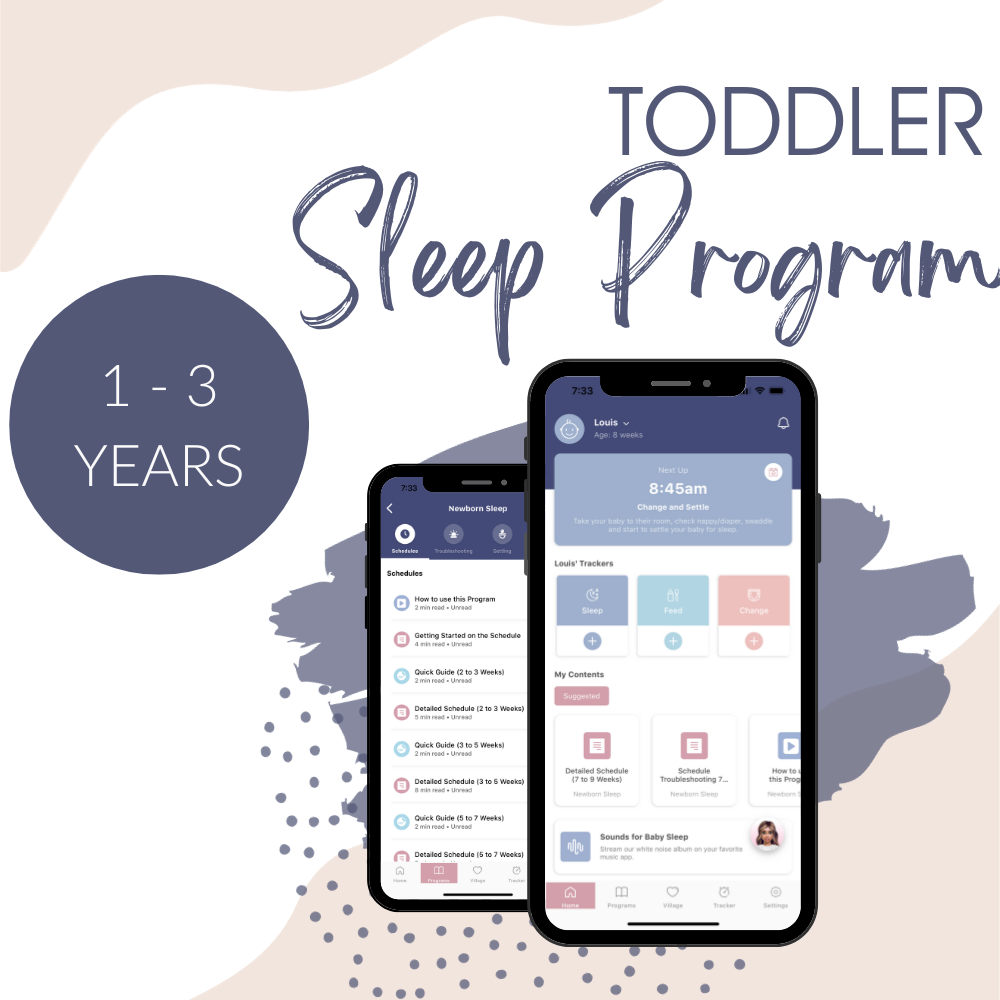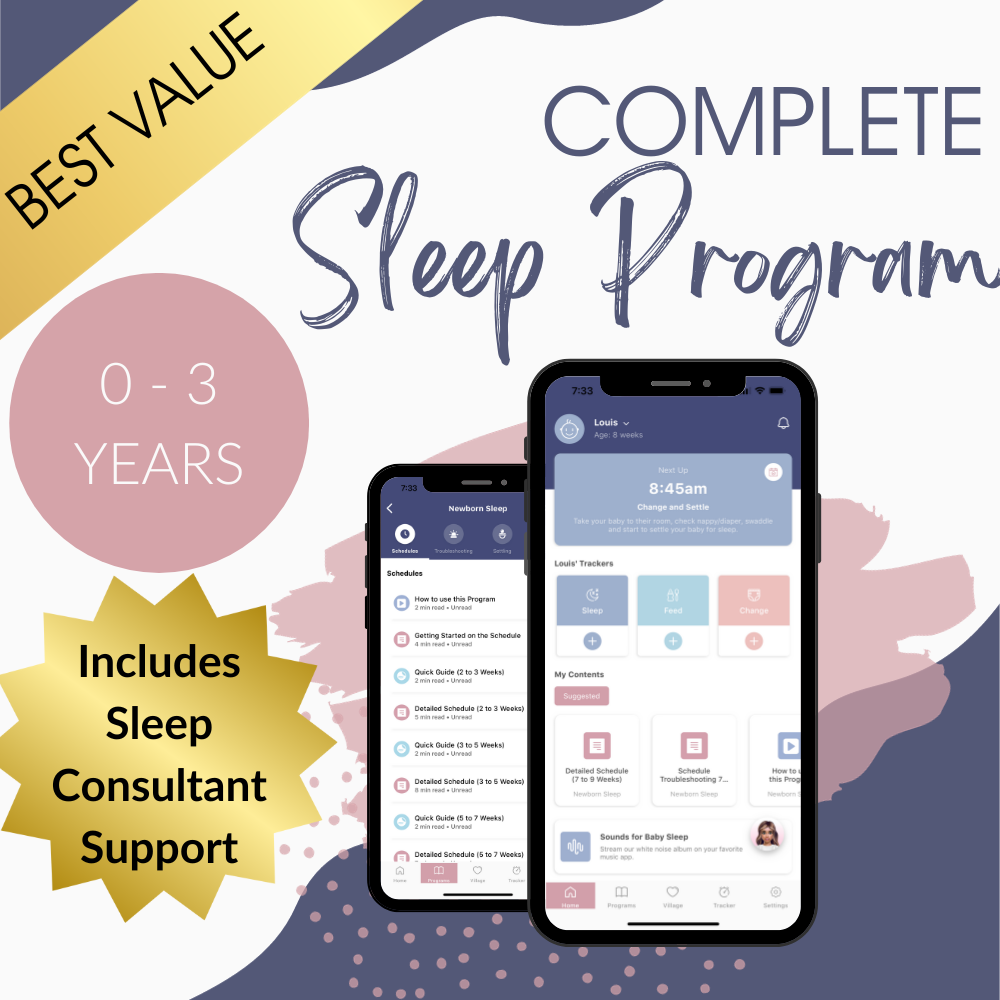
Tips for night feeds!
Once you’ve got a baby, your nights will never be the same again! Certainly in the first few months, or until your baby is established on solids, you can expect to be getting up at night to feed your wee one. Some babies can simply feed then go straight back to sleep, however, some can wake up and then stay awake for several hours in the middle of the night or be very difficult to settle back to sleep again! The way you approach night wakes/feeds can have a real effect on your baby’s ability to stay in the "zone" for sleep.
In this article, we're sharing our top 10 tips to make this whole overnight experience a lot more manageable for both you and your baby.
Struggling with overnight wakes?
We can help you get more sleep! With the customised sleep schedules, gentle settling methods and personalised support available in our Little Ones App, you and your little one will soon be sleeping soundly.
Get more sleep
1. LISTEN FIRST
Babies (and especially newborns) can be very noisy sleepers! They grunt, wiggle, snort and whimper in their sleep. If you wake to your baby making noises, don’t leap out of bed right away - listen to see if they’re simply snuffling in their sleep!
Many times we jump up to our babies’ every noise and end up disturbing their sleep accidentally. Unless your baby is crying, just listen first to see if they need you to tend to them or if they’re just doing a little wiggle between sleep cycles.
2. LIGHTS OFF
When tending to your baby in the night, keep the lights off. If you need some light to see what you're doing, use a red nightlight, the light from your phone or let a little light from the hallway spill into the room. Exposure to light during night-time hours will signal to your baby’s body clock that it is daytime and they’ll want to stay awake!
Definitely do not watch TV while doing night feeds as the light from TVs is a blue-based light and this can interfere with both your and your baby's melatonin production, making it harder to go back to sleep.
3. KEEP IT LOUD
We recommend using white noise all night long to help your baby settle and sleep, so definitely keep the white noise going while you’re feeding your baby! This continuation of their “sleep noise” will ensure they remain sleepy and in the right zone to go right back to sleep after their feed.
4. AVOID DIAPER CHANGES
Only change your baby’s diaper if it is necessary, not just because they’ve woken. Babies can usually go several hours without a diaper change, even if they have a milk feed, and changing their diaper can really stimulate them and make it hard for them to settle back to sleep!
If you do need to do a diaper change, the best time to do this is before you feed, or mid-feed, so your baby still has the rest of the feed to get nice and sleepy again. Changing a diaper mid-feed is also a good option for younger babies who might be too sleepy to take a decent feed. A diaper change can help to wake them up just enough to finish the feed.
5. KEEP THEM COZY
If your baby is swaddled, keep them swaddled throughout their night feeds. Or if your baby is older, keep them in their sleeping bag. If you need to do a diaper change before or during their feed, re-swaddle them again or put them back in their sleeping bag as soon as they are changed. This makes it easy to simply pop your baby back in their bed after feeding and winding them.
Say goodbye to sleepless nights.
Join over 300,000 families worldwide who are enjoying excellent sleep with our Sleep Programs, created by experts in the field of pediatric sleep.
Buy Now
6. WIND YOUR BABY WELL
Babies definitely need to burp after each feed. Even at night. If your baby falls asleep while feeding or is put back to bed without a decent burp escaping, it can cause them to wake again 15-20 minutes later or it can mean they don't settle easily back to sleep. Wind is a major culprit of waking in the early morning hours!
If you're trying to wind your baby and they are not releasing a burp, keep trying! I guarantee there is one there and it could well be the cause of their unsettled night. In our Little Ones App, we share further tips and a video tutorial for winding your baby.
7. MINIMAL STIMULATION
Try to avoid too much stimulation with your baby in the night - they need to learn that the night is for sleeping! Often day and night confusion occurs in newborn babies and this is exacerbated by lots of communication or stimulation in the night. Newborns get stimulated very easily, even the sound of a voice is enough to stimulate them and they will wake up fully to check out this new sound. Your baby doesn’t need games or tickles in the middle of the night - save this for during the day when you want to keep them awake!
8. LOOK AFTER YOURSELF
If you are breastfeeding, make sure you’re drinking water when you’re up feeding during the night - it’s thirsty work! Keep a water bottle by your feeding chair in baby’s room so you don't forget. If you need to have a snack in the night, try not to choose something with too much sugar in it or it might keep you awake. A banana is a really good choice because bananas contain the enzyme tryptophan which actually helps with sleep!
9. READ OR LISTEN
It can take a while for a very young baby to feed in the night, so be prepared! Have a good book on your phone, iPad or kindle so you can read it while you’re feeding. This gives you a bit of relaxation and time-out too and will make the hours of feeding feel like less of a chore. You could also listen to music or podcasts through headphones while feeding in the night. Keeping yourself relaxed will benefit your mood and also make it easier for you to fall back asleep again.
10. TAKE A CLOSER LOOK AT YOUR BABY'S SLEEP
If your baby is waking very frequently overnight and/or staying away for long periods, it might pay to have a closer look at what's happening in their day, as this sort of waking pattern can indicate a baby is over or under tired. Some simple tweaks to your baby's day time sleep may be all that's needed to reduce their overnight waking.
If your baby is over 4 months and waking every 2 hours overnight, this might indicate they are waking simply to be "put" back to sleep by feeding. Read more about this here.
We know how exhausting it can be getting up night after night but this time alone with your baby, in the quiet hours of the night, can also be really special. There will come a time when your baby no longer needs you to help them back to sleep and when that happens, you will probably feel relieved at first (after all, it means more sleep!) but don't be surprised if, one day, you find yourself feeling a little bit wistful too.
And remember, if you are struggling with your baby's overnight wakes, we're here to help. Our Little Ones App provides you with all of the information and tools you need to improve your baby's sleep and our certified sleep consultants are available to chat to at any time of the day or night.
------------





